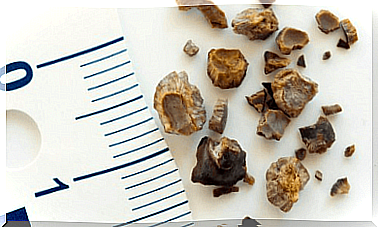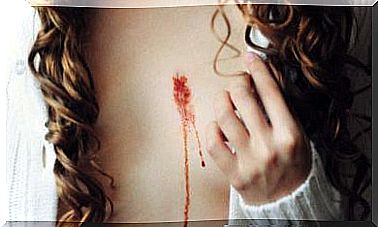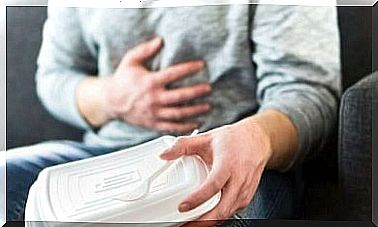Bruxism: A Psychosomatic Disorder
The affected person is not necessarily aware of bruxism, because one can clench his teeth unconsciously. This is why it is usually someone from the outside who realizes the situation.
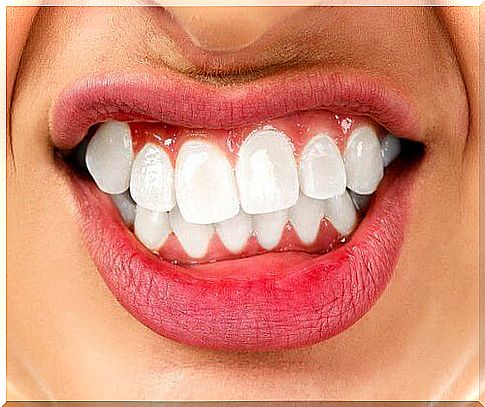
The habit of involuntarily grinding their teeth, especially at night, is a very common problem among adolescents although there are also adults who suffer from it. Bruxism can cause headaches, jaw and earaches, as well as damage to the teeth.
In this article, we are going to tell you more about this psychosomatic disorder that is worth investigating.
What to know about bruxism?
It can appear at any time in life, although most patients are between the ages of 17 and 20 when it appears.
Regarding remission, it can happen spontaneously (without treatment) or last for several years in the case of chronic bruxism.
This habit stems from anxiety states, genetic factors and allergies. However, more often than not, it is stress that triggers bruxism.
It does not come from intestinal parasites, as some people think.
We can divide bruxism into several categories.
Centered bruxism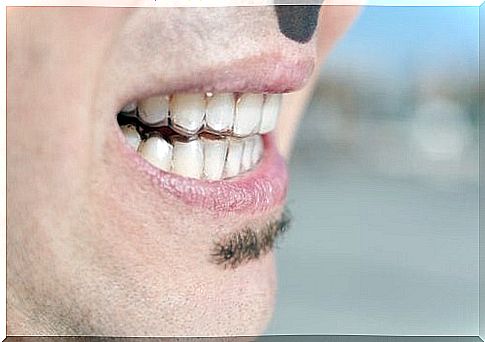
It occurs when you grit your teeth hard and causes cervical abfraction. The most affected teeth are the premolars and one of the most common symptoms is tension headache.
Eccentric bruxism
This is the friction between the upper and lower teeth that causes noises and sudden movements in the jaw.
This wears out the teeth (especially the incisors) and can generate lesions and loosening.
Night bruxism
It happens during sleep and who suffers from it does not realize it. It appears during phases 2 and 3 of non-REM sleep. If one sleeps 8 hours at night, the episode of bruxism will last between 15 and 40 minutes.
Daytime bruxism
The person does not realize it but rubs or clenches their teeth very hard when under pressure at work or at university. It is linked to work stress and personal problems.
Why is bruxism a psychosomatic disorder?
Grinding our teeth is a way for many to relieve the tensions caused by the obligations, pressures or vicissitudes of life.
While some people may think that bruxism can be treated (and cured) with a few visits to the dentist, it’s obvious that it’s also important to see a psychologist.
In reality, it is better to approach the two medical specialties.
The dentist will look after or treat worn or broken teeth, while the therapist will try to find the reason for the appearance of this habit.
For this, it is necessary to focus, of course, on the situations of stress, anxiety or worry that the patient may go through.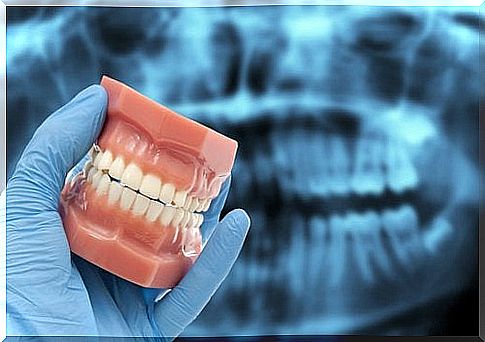
The person who suffers from it is not aware of this habit, nor of the causes that cause it.
Bruxism is considered a psychosomatic disorder and sometimes the diagnosis is simple but the treatment complicated.
Since it is caused by a long episode of stress, it can be accompanied by other symptoms, for example, headaches or neck pain.
At the University of Chile, research has been done on the impact of bruxism in a person’s life.
They indicate that it may have periods of higher impact, depending on the pressures or issues that the person may be going through.
The good news is that once it is detected by a loved one or friend who hears the teeth grinding, or by the person itself, it can be treated with sessions with a psychologist.
This therapy will put words to the fears and concerns that affect the patient, work on them so that they do not influence the daily life too much and prevent them from triggering bruxism.
Treatments and prevention of bruxism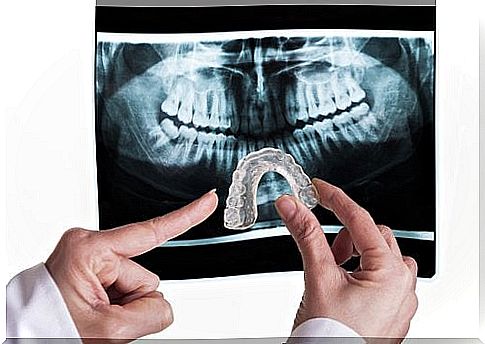
In this global or multi-disciplinary treatment to reduce the consequences of bruxism, we find:
Odontological treatment
With an occlusal adjustment or a splint that mimics the desired jaw model.
This object is placed when you lie down and the only thing that is avoided is that the teeth do not break or get damaged, but it does not eliminate this bad habit.
Psychological treatment
It is very important that the person attend therapy to determine the cause of bruxism. A change in attitude towards problems or obligations is the first step in avoiding this habit.
Pharmacological treatment
In cases of bruxism and extreme stress, doctors use tranquilizers or muscle relaxers, as well as anti-anxiety medications.
Physical treatments
When the facial discomfort due to clenching the teeth is too painful, the therapist may offer massages or relaxation techniques for the neck and head.
It is another palliative treatment, but not preventive or reduce bruxism.
Acupuncture treatment
Therapy that uses small needles to improve certain emotions can be used to relax the patient and prevent them from grinding their teeth at night.
Relaxation treatment
Yoga, meditation, or tai chi can be of great benefit to people who suffer from bruxism.
These disciplines relax the body, calm the mind and reduce stress, nervousness and anxiety.
Finally, to prevent new episodes of friction or pressure on the teeth, we can:
- Practice sports to allow deeper sleep.
- Take afternoon naps.
- Engage in recreational activities, such as listening to music or reading before bed.
- Reduce your caffeine intake.
- Take relaxing baths in the evening.
- Apply moist heat to the face and neck.


